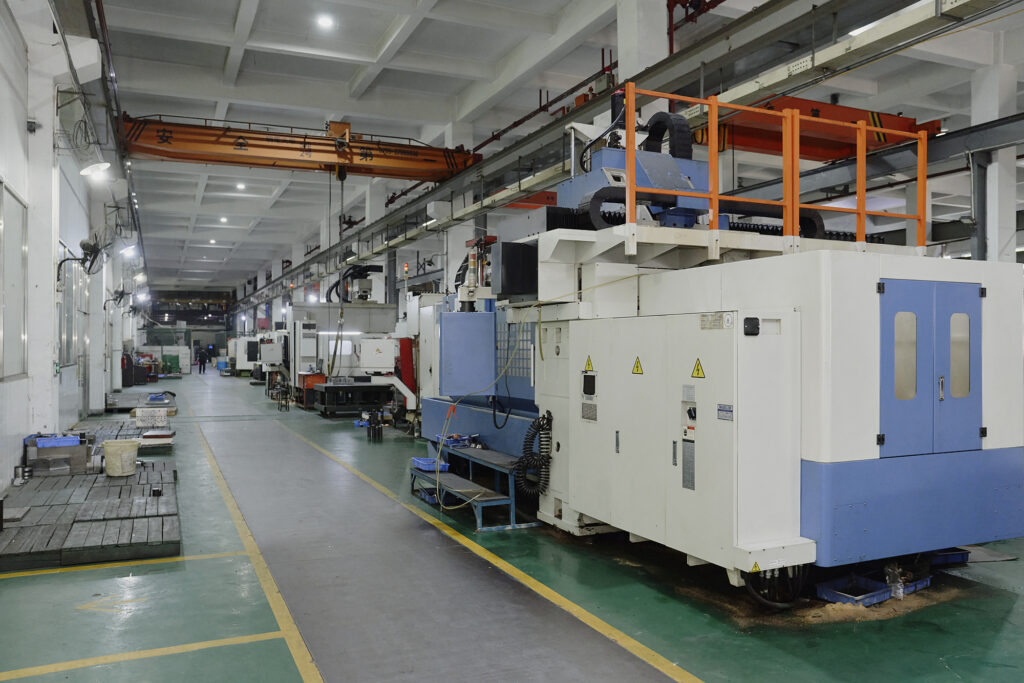CNC Machining Factory
Premium CNC Machining: Unmatched Precision, Custom Solutions, Engineered for Excellence in Every Detail.
The CNC Machining Services Premium offers you
Redefining Precision in CNC Machining. Discover Custom, High-Quality Solutions, Crafted in Advanced Facilities. With Extensive Experience and Deep Industry Expertise, We Ensure Every Product is Precisely Tailored to Your Specifications, Meeting Diverse Applications with Unparalleled Efficiency and Reliability.

CNC Milling
Transform your innovative designs into tangible success with Premium’s CNC Milling. We skillfully navigate complex geometries in a range of materials, ensuring your components are precisely what you envisioned. Elevate your project’s quality and efficiency with our expert milling solutions.
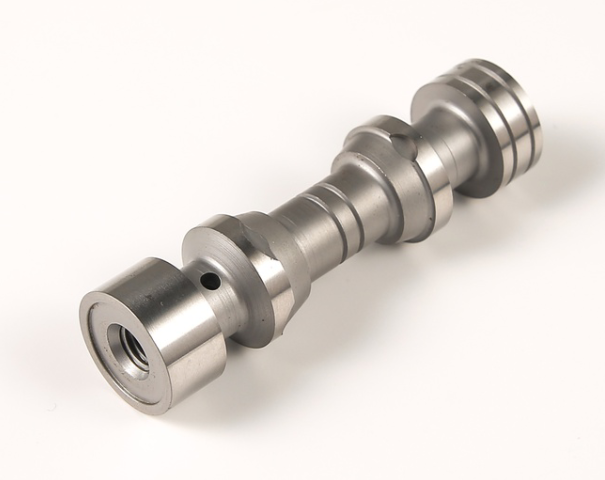
CNC Turning
Bring precision to your cylindrical components with Premium’s CNC Turning. Our advanced lathes craft your parts to the finest detail, ensuring each piece meets your exact standards. Enhance the consistency and excellence of your projects with our specialized turning services.
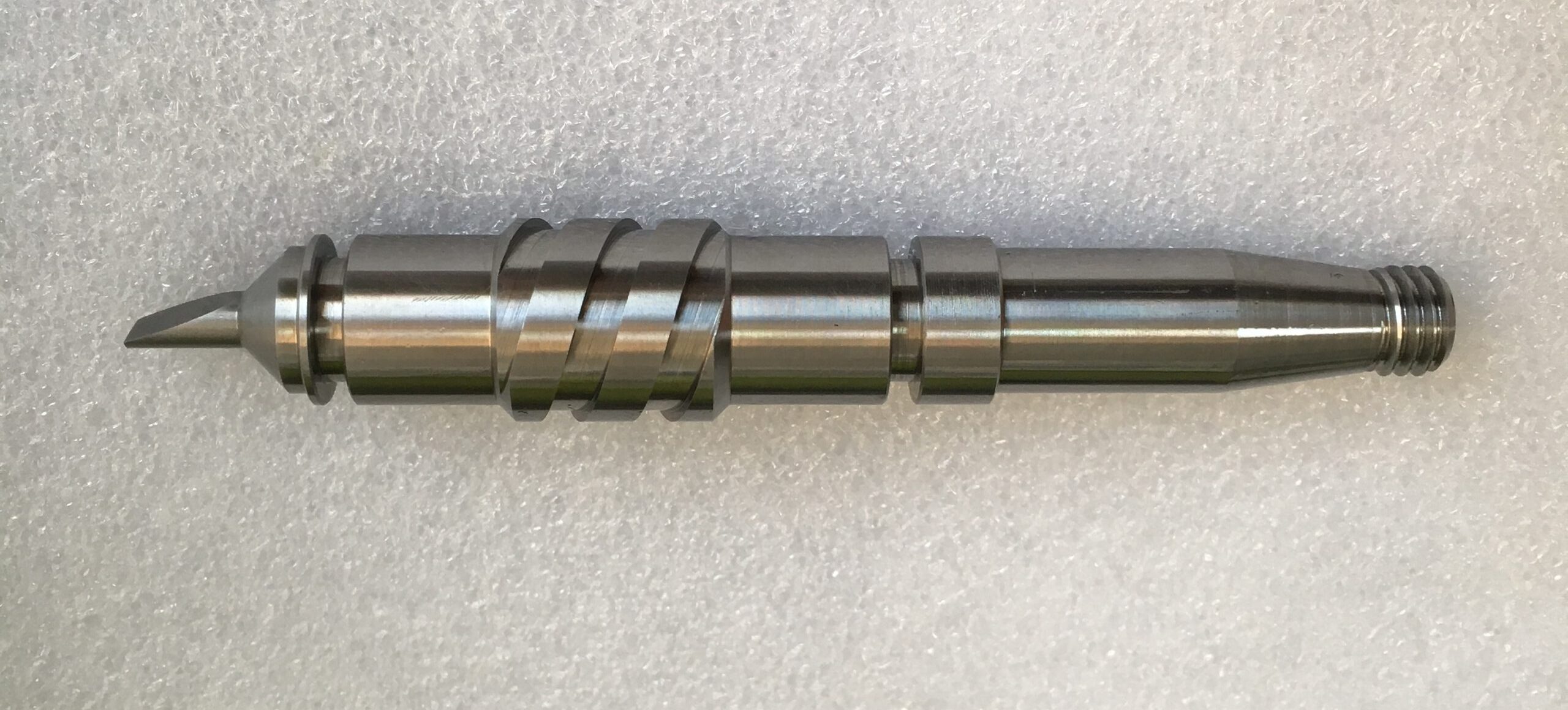
Precision Machining
Step into a world of ultra-precision with Premium’s Precision Machining. We’re committed to delivering components with stringent tolerances and intricate details, perfectly aligned with your project’s highest standards. Let’s elevate your product’s performance and longevity with our precision-focused approach.
Your CNC Machining Service Manufacturer & Supplier in China
Understanding the distinct needs of your project is our specialty at Premium. As a leading provider of CNC Machining services, we commit to delivering precision and tailored solutions for each unique requirement, ensuring every machined part meets your exact specifications with unmatched accuracy.
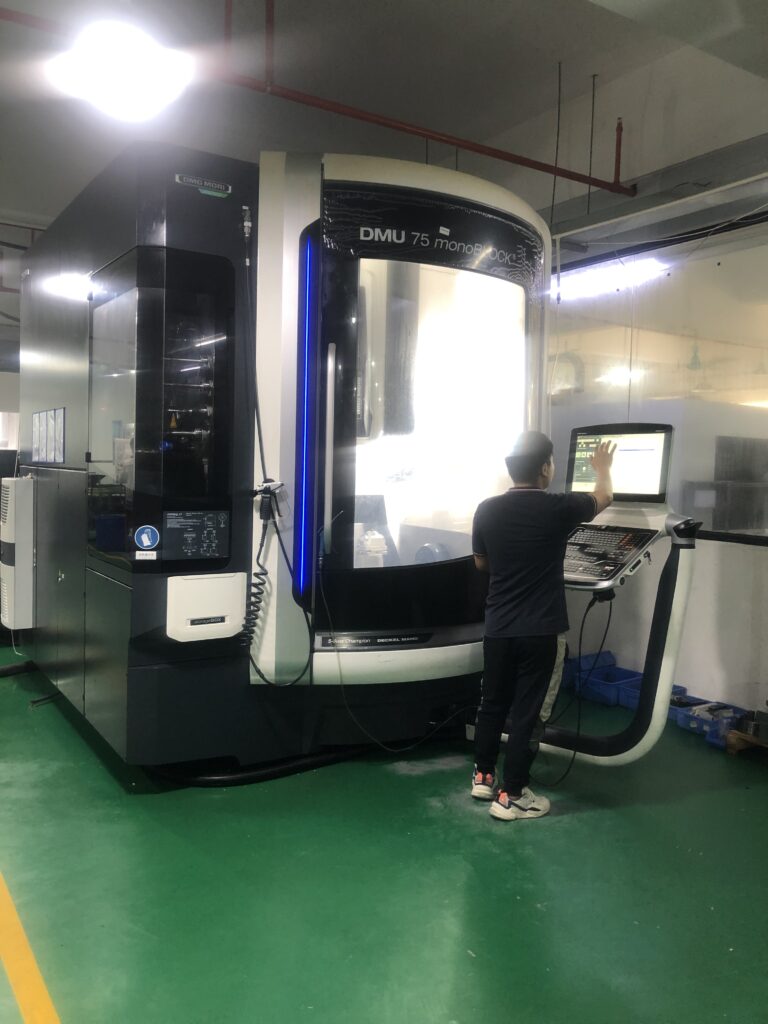
Tailored Design and Dimensions: Premium’s CNC Machining transforms your designs into precisely crafted components, ensuring perfect fit and specifications.
Material Selection and Surface Finishes: Choose from diverse materials and finishes with our CNC Machining for durability and aesthetics, suitable for metals and plastics.
Component Variety and Flexibility: Our CNC machines efficiently produce a wide range of components, from complex gears to simple plates, adapting to any project size.
Precision and Accuracy: Our CNC services deliver exceptional precision and tight tolerances, ensuring high accuracy in every machined component.
Coating and Treatment Customization: Customize coatings and treatments with our CNC services to enhance part performance and longevity, tailored to your application needs.
Easily Tailor Your CNC Machining Components
Customize Your CNC Machined Components with Ease: At Premium, streamlined customization is our forte. From understanding your project’s nuances to executing intricate designs, our four-step process, backed by expert support, ensures seamless delivery of your bespoke CNC components, perfectly tailored to your specifications.
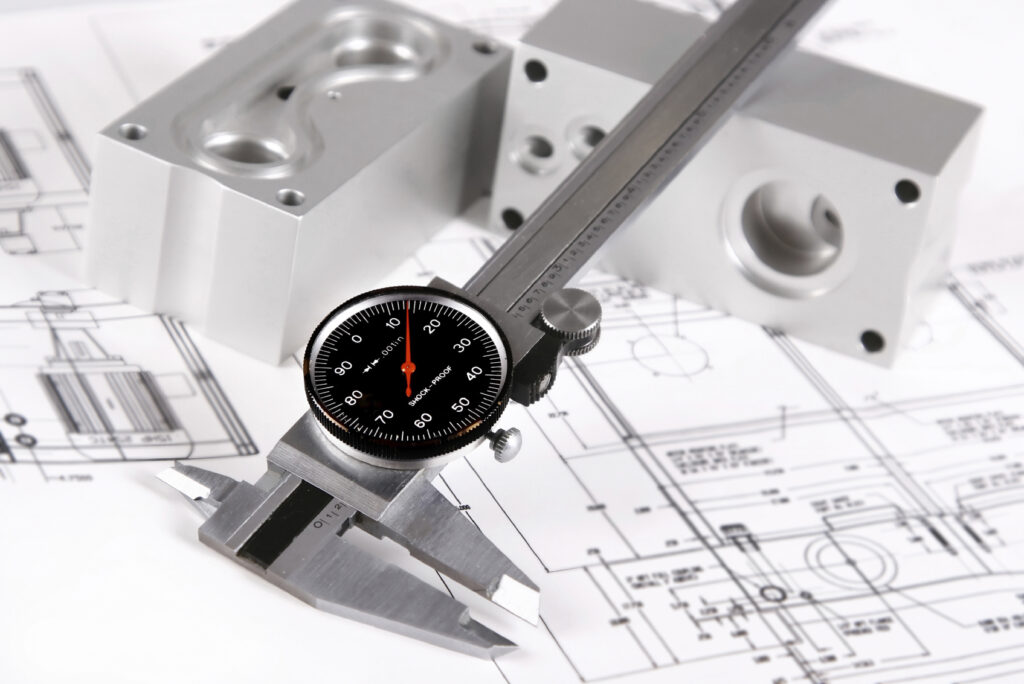
Understanding Your Unique Requirements: Share project specifics – material properties, mechanical stresses, environmental conditions – for tailored CNC parts that fit your application.
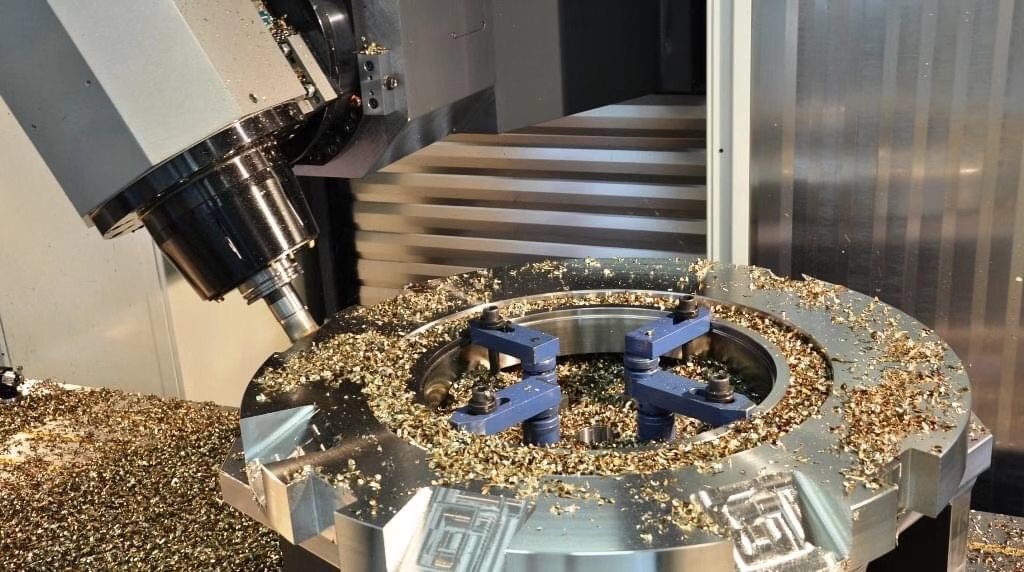
Defining Precision and Complexity: Outline required precision and complexity for diverse needs like aerospace, automotive, or medical devices, ensuring process alignment with your demands.
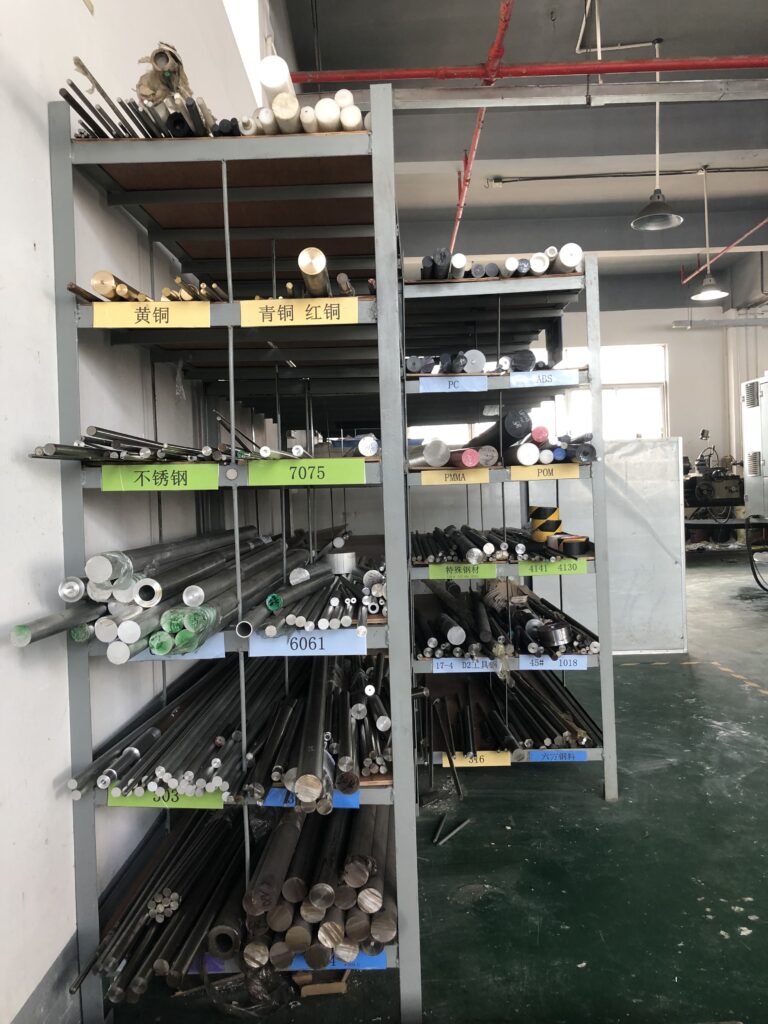
Custom Material & Process Selection Select from various materials and machining processes for optimal cost-efficiency and quality, guided by our expert team.
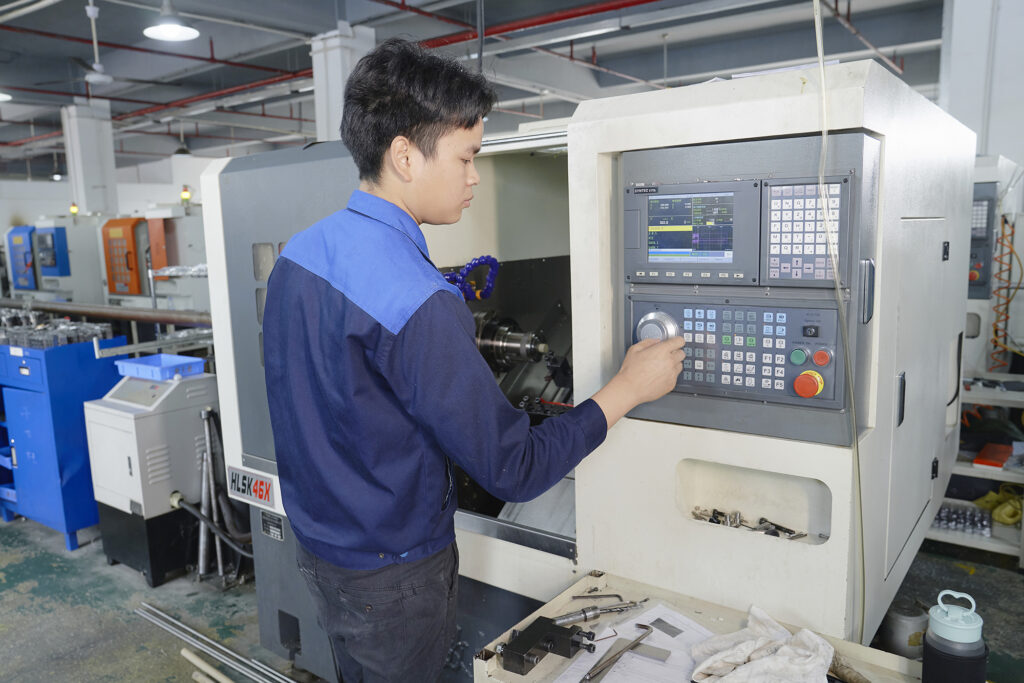
Finalizing Design & Executing with Precision: Submit final designs; our advanced CNC technology faithfully transforms blueprints into high-precision components, adhering strictly to your specifications.
Why Choose CNC Machining Service from Premium Rapid ?
Boost your project’s success with Premium Rapid’s expert CNC Machining. Specializing in precision, flexibility, and efficiency, we turn your complex designs into reality. Rely on us for durable, accurately machined parts that fit seamlessly into your industrial applications, optimizing your production process.
Versatile Material Compatibility: Premium Rapid’s CNC Machining handles a broad range of materials, from metals to composites, offering versatile solutions beyond plastics.
Complex Geometry Mastery: Our CNC Machining excels in creating complex geometries with high precision, impossible to achieve with standard injection molding techniques.
Rapid Prototyping Efficiency: Ideal for rapid prototyping, our CNC services provide quick turnarounds, accelerating your development cycle compared to traditional molding methods.
- Unmatched Dimensional Accuracy: “Our CNC Machining delivers exceptional dimensional accuracy and tighter tolerances, essential for critical applications where precision is paramount.
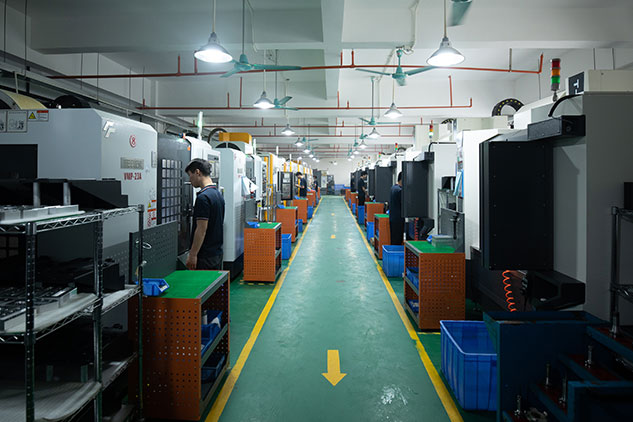
FAQs About Plastic Injection Molding Services
We’ve compiled the most frequently asked questions about our injection molding services for your convenience. However, should you have any additional questions, please don’t hesitate to contact us.
CNC Machining is versatile, handling metals like aluminum, steel, brass, and plastics like ABS, polycarbonate, and PEEK.
Typically, CNC Machining can achieve tolerances as tight as ±0.02mm, depending on the material and part complexity.
3-axis milling: 1270×500×635 mm; 5-axis milling: 450×700×400 mm, with a Worktable Diameter of Φ400 mm.
Yes, CNC Machining can create complex shapes and internal features that are often challenging for other manufacturing methods.
Absolutely, CNC Machining is ideal for prototypes due to its precision and ability to use actual production materials.
Cost varies based on complexity, material, and quantity. Contact us with your project details for a precise quote.
Lead times vary, but standard projects can range from 4-5 days, depending on complexity and material availability.
Premium's CNC Machining stands out for its advanced technology, focus on low volume,quick turnaround, and high-quality finishes, tailored to specific client needs.
Yes, Premium provides various custom finishes, including anodizing, plating, and powder coating, heat treatment,to enhance part aesthetics and functionality.
Cost varies based on complexity, material, and quantity. Contact us with your project details for a precise quote.
We offer diverse CNC machining services including 3-axis and 5-axis milling, turning, drilling, and surface grinding, suitable for various applications.
With a 25,000 square foot shop, 70+ skilled employees, and 16 high-performance CNC machines, we handle over 200 projects and 20,000+ parts monthly.
Designing parts are out of our capability as a manufacturer, but we can provide some guidance on design for manufacturability (DFM). With this, we can advise on how to optimize your design and reduce costs while retaining functionality.
We accept CAD data in any format, 2D and 3D, including STP, IGES, X_T, DWG, PDF, STL;The expected quantities, machining processes, and raw materials required.
Precision CNC Machining: From Raw to Refined at Premium Rapid
Embark on a journey through Premium Rapid's CNC machining services. From state-of-the-art 3-axis and 5-axis centers, precise CNC turning, and diverse surface finishing techniques to meticulous quality inspection and specialized part packaging, we uphold excellence at every step, backed by our ISO9001 and IATF16949 certifications.
Dive into the heart of precision with our state-of-the-art 3-axis and 5-axis CNC machining centers. Witness cutting-edge technology transforming raw materials into intricate parts, showcasing the perfect blend of speed, accuracy, and versatility.
Experience the precision of our CNC turning services, where advanced lathes produce highly accurate and consistent cylindrical parts. Our facility is equipped to handle complex shapes and sizes, ensuring top-notch quality for every component.
Discover the array of surface finishing options at Premium Rapid. Our techniques range from bead blasting for a uniform matte finish to anodizing for enhanced corrosion resistance. Polishing, powder coating, and electroplating are also part of our repertoire, ensuring each part not only functions optimally but also looks impeccable.
In our quality inspection area, precision is paramount. Equipped with height gauges, calipers, hardness testers, and more, we meticulously measure and test each component. This rigorous process ensures every part adheres to the highest standards of accuracy and quality before it leaves our facility.
Our packaging process is tailored to each part, utilizing materials like foam, bubble bags, cartons, wooden boxes, and anti-static film. We consider product requirements, size, and weight to provide the most suitable and secure packaging method, ensuring safe and damage-free delivery to our clients.
Our ISO9001 and IATF16949 certifications underscore our adherence to the highest quality and automotive industry standards. These certifications are a testament to our unwavering commitment to excellence in CNC machining services.
Navigating Your CNC Machining services Purchase: The Comprehensive Guide
Welcome to the world of Premium Rapid’s CNC Machining services, where precision meets innovation. In this comprehensive guide, we delve into the intricacies of material selection, cost efficiency, handling complex geometries, and achieving tight tolerances. Explore our expert insights to make informed decisions in your CNC Machining journey.
Table of Contents
What is CNC Machining Services ?
CNC Machining Services stand at the forefront of modern manufacturing, offering unparalleled precision and versatility in producing a wide array of parts. At its core, CNC (Computer Numerical Control) Machining represents the pinnacle of digital manufacturing technology, allowing for the automated control of machine tools by means of a computer.
The process begins with a detailed 3D model, which is translated into computer instructions that direct the CNC machine’s movements. These machines, encompassing lathes, mills, and routers, meticulously sculpt material from a solid block, ensuring accuracy that manual processes can hardly match. This precision is critical in industries where even a fraction of a millimeter can make a significant difference, such as aerospace, automotive, and medical devices.
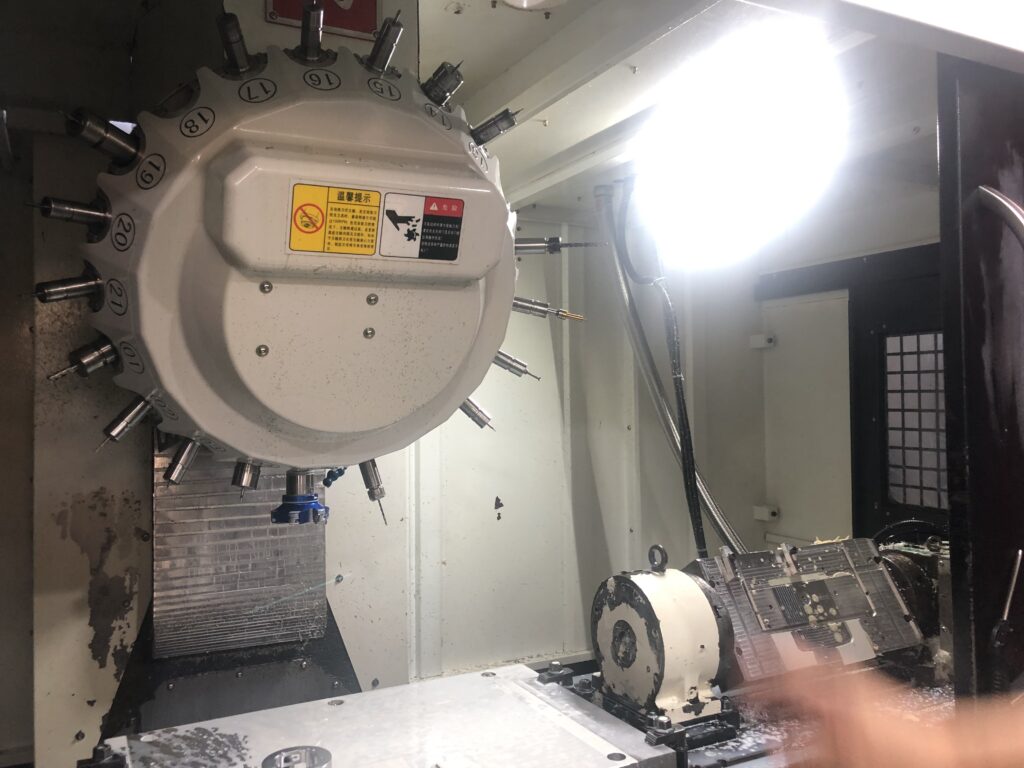
One of the key advantages of CNC Machining is its material versatility. It can process a broad spectrum of materials, from metals like aluminum and titanium to plastics such as nylon and acrylic. This adaptability makes it a preferred choice for a variety of applications, ranging from simple prototype development to complex, high-volume production runs.
The evolving landscape of CNC technology also integrates advanced software and automated tooling solutions, further enhancing its efficiency and capabilities. As a result, CNC Machining is not only reserved for large-scale manufacturing but is also increasingly accessible for smaller businesses and startups.
For professionals and enthusiasts keen on understanding the dynamics of CNC Machining, it’s essential to stay abreast of the latest technological advancements and practical applications. The field is continually evolving, with ongoing improvements in speed, accuracy, and the ability to handle complex designs.
In summary, CNC Machining Services embody a critical component of modern manufacturing. Its ability to deliver precise, repeatable, and efficient production makes it an indispensable tool in the industrial landscape, fulfilling the demands of a diverse range of industries and applications.
Strategies to Reduce Costs in CNC Machining Service
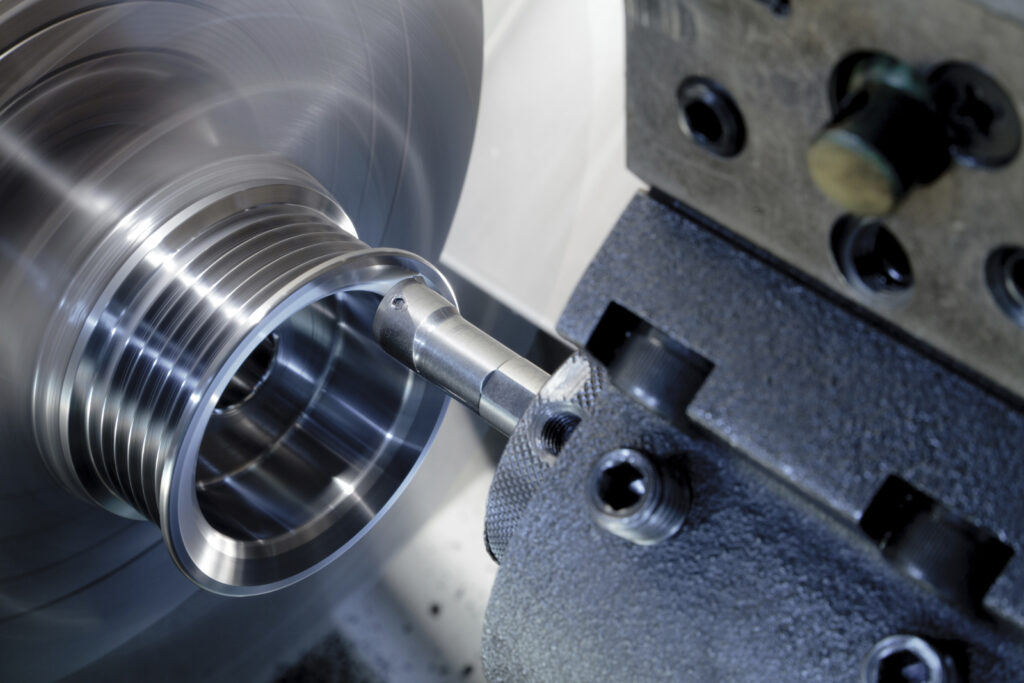
In the CNC Machining industry, cost efficiency is as crucial as precision. we have identified several strategies to help reduce costs without compromising on quality.
Firstly, optimizing design for manufacturability is essential. Simplifying part geometry and minimizing the number of machine setups can significantly reduce machining time and costs. Consider designing parts that can be efficiently machined in a single setup or using standard tooling.
Material selection plays a pivotal role. Choosing the most suitable, yet cost-effective material that meets the project requirements can lead to
significant savings. For instance, using aluminum instead of titanium for parts where high strength is not a critical factor can be more economical.
Batch production is another effective strategy. Machining parts in larger quantities typically reduces the cost per unit due to economies of scale.
Investing in the latest CNC technology can also lead to long-term savings. Modern machines with higher precision and speed can reduce cycle times and scrap rates.
Lastly, establishing a collaborative relationship with your machining service provider can lead to more efficient and cost-effective machining solutions. Open communication about project requirements and constraints allows for better planning and resource utilization.
Adopting these strategies can lead to substantial cost savings in CNC Machining projects, making them an essential consideration for anyone in the industry, whether they’re just starting out or looking to refine their manufacturing processes.
How CNC Machining Works: Advantages and Applications
CNC Machining stands as a critical component in modern manufacturing, reflecting the convergence of technology and industrial prowess. This process utilizes Computer Numerical Control (CNC) to operate machine tools like lathes, mills, and grinders, transforming digital designs into tangible parts with remarkable precision.
The journey from concept to creation in CNC Machining starts with a Computer-Aided Design (CAD) model. This model is translated into a machine-readable program, directing the CNC machine to accurately remove material from the workpiece, thus shaping it into the specified design.

One of the primary advantages of CNC Machining is its precision, essential for producing complex geometries and adhering to tight tolerances. Consistency is another hallmark, especially vital in mass production, where uniformity across numerous parts is paramount.
In terms of applications, CNC Machining’s versatility is unmatched. It’s used across various sectors, including aerospace, automotive, medical, and more. Whether it’s creating intricate components for aircraft or bespoke parts for custom machinery, CNC Machining’s precision and flexibility make it a preferred choice.
As technology advances, CNC Machining continues to incorporate sophisticated software and automation, expanding its capabilities. This evolution makes CNC Machining an invaluable process in the manufacturing sector, essential for those aiming to stay at the forefront of production technology and innovation.
Custom CNC Machining: Precision Engineered Solutions for Diverse Industry Needs

Custom CNC Machining stands as a pillar of innovation in the manufacturing landscape, providing tailored solutions for specialized projects that standard components cannot fulfill. This advanced process transcends conventional machining practices, adapting to the unique requirements of each project with unmatched precision and attention to detail.
Central to custom CNC Machining is its capacity to transform complex and ambitious designs into tangible realities. Leveraging advanced software, it interprets intricate CAD models, allowing CNC machines to intricately carve materials with extreme precision. This results in components with elaborate features and tight tolerances, often surpassing the capabilities of traditional machining methods.
This approach is vital across various sectors, especially those requiring highly specialized parts. In the aerospace industry, it produces components built to endure extreme conditions. The medical field relies on its precision for devices where minute measurements can be critical. The automotive sector, particularly in custom and high-performance areas, depends on CNC Machining for parts that demand strict adherence to strength, durability, and precision standards.
Extending beyond these industries, custom CNC Machining is instrumental in electronics for precision parts in devices, renewable energy for durable components in solar and wind installations, consumer goods for intricate product designs, defense for robust military equipment, robotics and automation for precise mechanical parts, and the marine industry for corrosion-resistant ship and underwater equipment.
The essence of custom CNC Machining is not solely in the technology but also in the expertise behind it. Skilled machinists and engineers with deep knowledge of material properties and manufacturing nuances play a pivotal role. Their expertise ensures the selection of the most suitable materials and the most effective machining strategies for each unique project.
In conclusion, custom CNC Machining is more than a manufacturing process; it’s a conduit to innovation, blending state-of-the-art technology with human ingenuity. It ensures that each unique project is not merely feasible but executed with precision-engineered perfection, catering to a broad spectrum of industries.
Quality Control in CNC Machining: Integrating Best Practices with Industry and International Standards
Quality control in CNC Machining is a critical facet that combines best practices with adherence to both industry and international standards. This integration is fundamental to ensuring the precision, reliability, and regulatory compliance of machined parts, a commitment well understood and valued by industry experts.
Adherence to Standards:
1.ISO 9001: This is a globally recognized standard for quality management systems. It requires companies to have a systematic approach to managing their processes while ensuring continuous improvement. In CNC Machining, this means consistent monitoring of machining processes, regular audits, and feedback loops for process optimization.
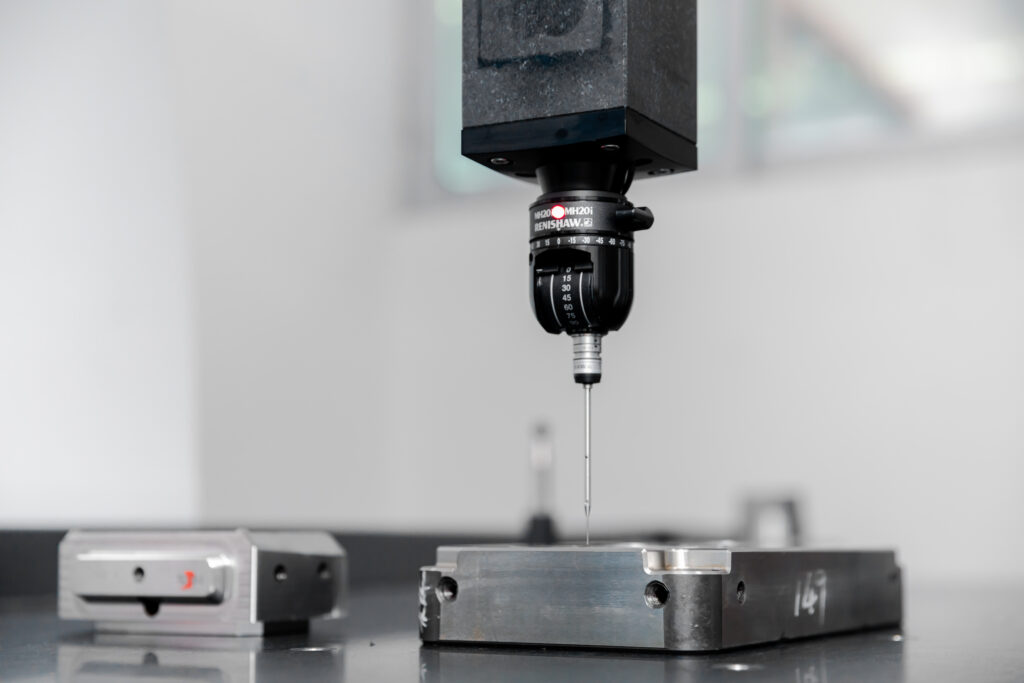
2.AS9100: Specific to the aerospace industry, this standard includes all ISO 9001 requirements with additional quality and safety criteria. It’s crucial for CNC Machining in aerospace due to the high-stakes nature of the parts produced.
3.ISO 13485: For medical device manufacturing, this standard emphasizes the stringent quality control necessary for products that impact health and safety.
Control in Manufacturing:
1.Design Verification and Material Inspection: Initial stages involve verifying CAD designs and inspecting materials, ensuring both align with customer specifications and material quality standards.
2.Process Control and Calibration: CNC machines are programmed with advanced software for precision and regularly calibrated to maintain accuracy.
3.In-Process Inspections: Parts are inspected periodically during machining using tools like CMMs to ensure adherence to specified tolerances.
4.Post-Processing Checks: After machining, parts undergo final inspections for dimensional accuracy and surface finish. This may include stress tests or functionality tests for critical applications.
5.Documentation and Traceability: Comprehensive documentation is maintained for each part, including material certifications, inspection reports, and process records.
6.Skilled Workforce: The role of skilled machinists, whose training in CNC Machining techniques and standards, is crucial for maintaining quality.
In conclusion, quality control in CNC Machining is a comprehensive and multidimensional approach. It involves integrating industry-specific standards with stringent manufacturing controls and skilled workforce training. This holistic method ensures that CNC machined parts meet the highest standards of quality and reliability, catering to the exacting demands of various industries.
Cost Analysis of CNC Machining: Unraveling the Intricacies of Your Investment
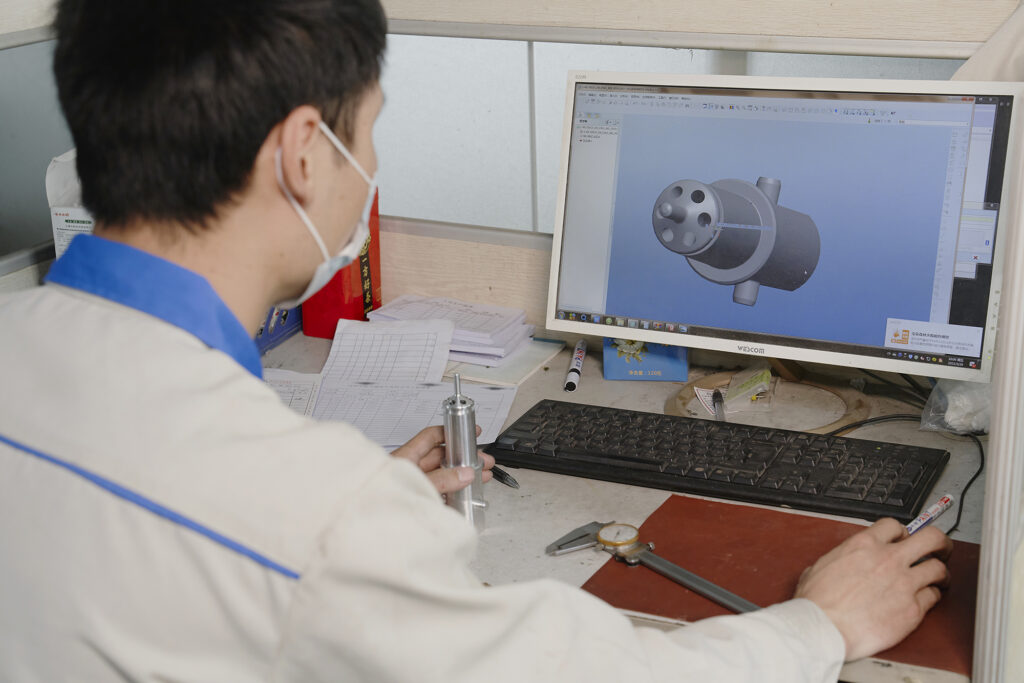
In the realm of CNC Machining, comprehending the intricacies of cost is crucial for customers navigating this technical field. The financial aspects of CNC Machining are multi-dimensional, reflecting a blend of various elements that collectively shape the overall expenditure of a project.
At the core of cost considerations is the complexity of the part design. Intricate geometries necessitating elaborate tool paths, multiple machine setups, and labor-intensive finishing work can significantly drive up costs. Material selection is another pivotal factor; high-grade metals like titanium or specialized composites often command a higher price than more common materials like aluminum or plastics.
Operational time on the CNC machine is a key determinant of cost. Lengthy machining durations, dictated by part complexity or precision requirements, elevate costs. The sophistication of the CNC machine being used also plays a role – advanced machines like 5-axis mills or turning centers often incur higher operational expenses due to their enhanced capabilities and maintenance needs.
Production volume impacts pricing dynamics. Larger production runs typically lower the unit cost due to economies of scale, but they also increase raw material usage and machine occupancy time. Conversely, small or prototype runs may have higher per-unit costs but require less overall resource commitment.
Post-processing treatments – including surface finishes like anodizing, powder coating, or heat treatments – add additional layers to the cost structure.
Understanding these diverse cost components is imperative for customers in CNC Machining. It empowers them to make informed choices, balancing between budget constraints and the high-quality, precision-driven results that CNC Machining is renowned for.
How to find a right CNC Machining service provider in China ?
Finding the right CNC Machining service provider in China requires a thorough and strategic approach, considering the unique aspects of the manufacturing landscape in the region. Here are some steps and tips to guide you:
1.Research and Referrals: Start with extensive online research. Look for providers with strong online presence, showcasing their capabilities and past projects. Referrals from industry contacts or business networks can also be valuable.
2.Evaluate Experience and Expertise: Focus on providers with experience in your industry or with your specific type of project. Providers with a broad range of services and expertise in various materials and techniques are often preferable.
3.Assess Quality Standards: Prioritize providers that adhere to international quality standards, such as ISO 9001. This ensures they maintain global quality benchmarks. Request for quality control protocols and certifications.
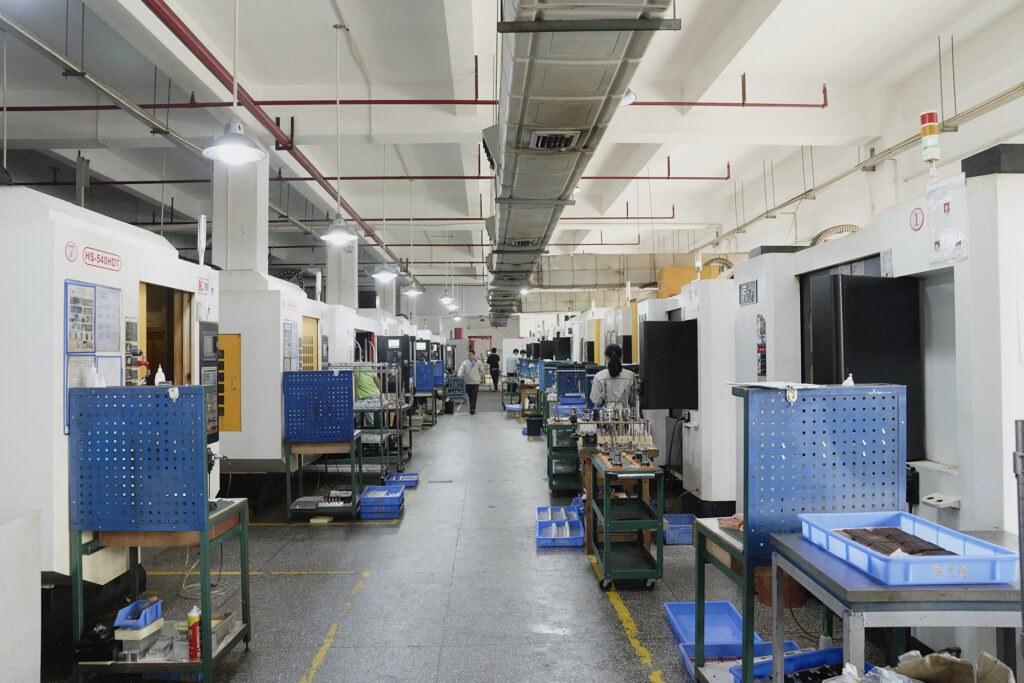
4.Technology and Equipment: Ensure the provider has modern and well-maintained CNC machinery. Advanced technology indicates a capacity for high precision and efficiency.
5.Visit the Facility: If possible, visit the provider’s manufacturing facility. This can provide insight into their operational efficiency, workforce skill, and commitment to quality.
6.Communication and Language: Effective communication is crucial, especially when dealing with overseas manufacturers. Ensure the provider has staff who can communicate fluently in your language to avoid misunderstandings.
7.Check Lead Times and Flexibility: Understand their capacity to meet your deadlines. Providers with flexible production schedules can be invaluable for urgent projects.
8.Consider Logistics: Evaluate their experience with international shipping and logistics. Understanding import/export regulations and having reliable shipping partners are important for timely delivery.
9.Review Client Testimonials and Case Studies: Look for feedback or case studies from previous clients, especially those from your country or industry. This can provide real-world insights into their reliability and quality of work.
10.Cost-effectiveness: While competitive pricing is important, it should not come at the expense of quality. Analyze quotes carefully to ensure they align with industry standards.
11.After-Sales Support: A good provider should offer strong after-sales support, addressing any issues post-delivery.
12.Intellectual Property Protection: Given the sensitive nature of designs and patents, ensure the provider has strict policies for intellectual property protection.
By carefully evaluating these factors, you can identify a CNC Machining service provider in China that aligns with your project’s needs and quality expectations, ensuring a successful and efficient manufacturing partnership.
CNC Machining: Driving Precision and Innovation in Automotive Manufacturing
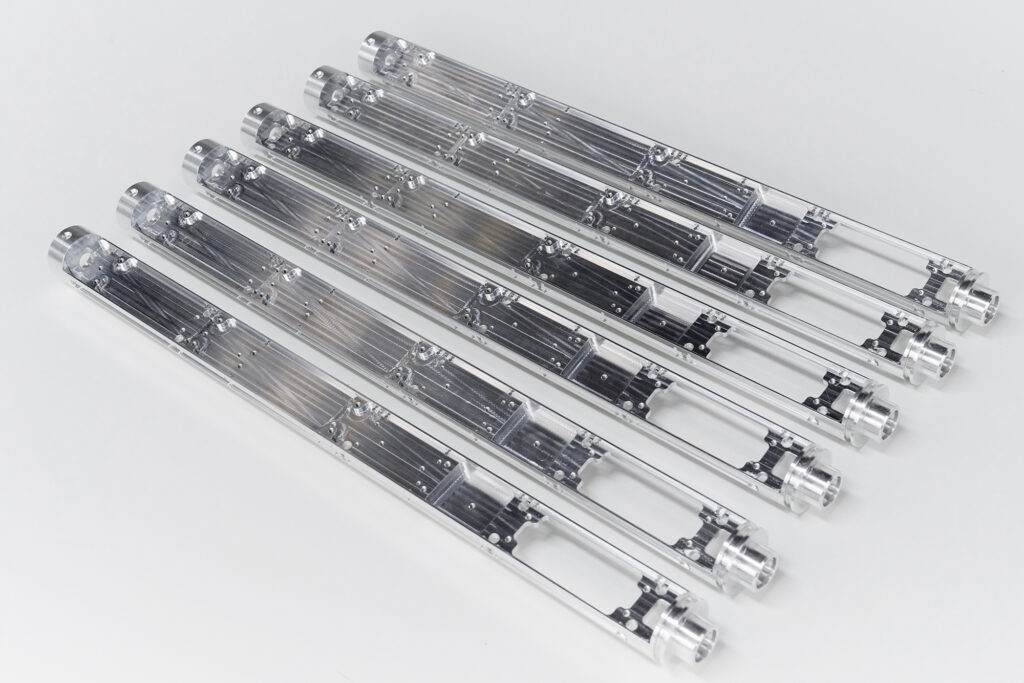
The automotive industry, known for its rigorous standards and precision requirements, relies heavily on CNC Machining to meet its evolving demands. This technology plays a pivotal role in manufacturing a wide array of automotive components, ranging from simple brackets to complex engine parts.
CNC Machining’s ability to produce parts with high precision and excellent repeatability makes it indispensable in the automotive sector. It ensures components have tight tolerances and fit perfectly into complex automotive assemblies. This precision is critical not just for performance but also for safety, a paramount concern in automotive manufacturing.
Innovations in CNC technology have further enhanced its applicability in the automotive industry. Advanced 5-axis machines can create complex geometries, which are often required in modern automotive designs. These machines can efficiently produce parts with intricate contours and surfaces that would be challenging or impossible to manufacture with traditional methods.
Moreover, the flexibility of CNC Machining allows for rapid prototyping, enabling manufacturers to iterate designs quickly and efficiently. This agility is crucial in an industry where speed to market can provide a competitive edge.
CNC Machining also offers versatility in material choice, from aluminum and steel to advanced composites, catering to the diverse needs of automotive applications. Whether it’s lightweight parts for fuel efficiency or robust components for high-performance vehicles, CNC Machining delivers.
In conclusion, CNC Machining’s role in the automotive industry is foundational. Its capacity for high precision, combined with speed and material versatility, makes it an essential part of the automotive manufacturing process, driving innovation and excellence in this dynamic industry.
CNC Machining for Prototyping: Advantages Over Traditional Methods
In the dynamic landscape of product development, CNC Machining stands out as a preferred method for prototyping, offering distinct advantages over traditional prototyping techniques. Its precision, speed, and versatility make CNC Machining a go-to choice for innovators and engineers across various industries.
One of the key benefits of CNC Machining in prototyping is its unparalleled accuracy. This method can produce parts with complex geometries and tight tolerances, essential for functional testing and design validation. Unlike some additive manufacturing processes, CNC Machining provides prototypes that closely mimic the properties and aesthetics of the final product, using the actual material intended for the end use.
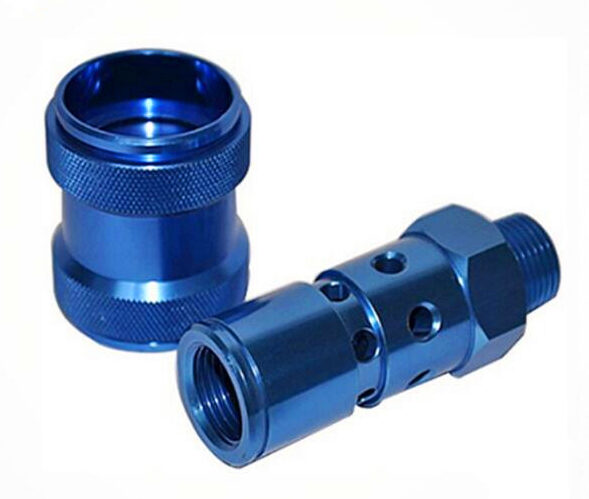
Another advantage is the speed of production. CNC Machining allows for rapid turnaround times, enabling designers to iterate and refine their prototypes quickly. This agility accelerates the product development cycle, helping bring products to market faster.
CNC Machining also offers a broad selection of materials, from metals to plastics, providing more options to meet specific prototype requirements. This versatility is invaluable in testing the performance of different materials under real-world conditions.
Moreover, CNC Machining for prototyping is cost-effective, especially for low-volume production runs. It eliminates the need for expensive tooling and molds required in other manufacturing methods, reducing the overall cost of prototyping.
In conclusion, CNC Machining offers a combination of accuracy, speed, material diversity, and cost-effectiveness, making it a superior choice for prototyping in today’s fast-paced product development world. Its ability to produce high-fidelity prototypes quickly and efficiently is an asset for any team looking to innovate and excel in their field.
Leveraging CNC Machining for Custom Medical Device Manufacturing: Precision and Compliance

CNC Machining in the medical device manufacturing sector is pivotal, where adherence to stringent standards and tolerances is a must. This process excels in fabricating components with the utmost precision and exacting specifications, vital for the healthcare industry.
CNC Machining’s precision is paramount. It consistently achieves tolerances as tight as +/- 0.0005 inches (±0.0127 mm), crucial for medical devices where even a minute discrepancy can have significant implications. This level of accuracy is essential for intricate surgical instruments, implants, and diagnostic equipment, ensuring flawless functionality and patient safety.
The versatility in material compatibility is another significant advantage. CNC Machining efficiently handles biocompatible materials like titanium, PEEK, and medical-grade stainless steel, all of which are extensively used in medical devices for their durability and compatibility with the human body.
Customization capability is a hallmark of CNC Machining in this field. The medical sector often demands tailor-made solutions for unique medical conditions. With CNC Machining, creating custom implants or surgical tools designed for specific patient anatomy or surgical techniques is achievable, enhancing the efficacy of medical treatments.
Furthermore, CNC Machining adheres to critical industry standards such as ISO 13485 for medical devices, ensuring compliance with regulatory requirements. This compliance is crucial for patient safety and market approval.
In the medical device sector, where the margin for error is virtually zero, CNC Machining’s capability to produce high-precision, customized, and regulation-compliant components makes it an invaluable manufacturing process. It not only fosters innovation in medical technology but also assures the reliability and safety of medical devices used in critical healthcare applications.
Handling Complex Geometries and Tight Tolerances in CNC Machining
In the world of CNC Machining, managing complex geometries and maintaining tight tolerances are central to producing high-quality parts. Achieving this involves a blend of advanced technology, skilled craftsmanship, and a deep understanding of material properties.
Complex geometries, often characterized by intricate contours, undercuts, or deep cavities, require precision tooling and expert programming. Utilizing advanced CAD/CAM software, CNC machinists can create detailed tool paths that guide machines with extreme accuracy. Modern CNC machines, especially those with 5-axis capabilities, are essential for such tasks, allowing for the maneuvering and rotation of the part or tool in multiple planes.
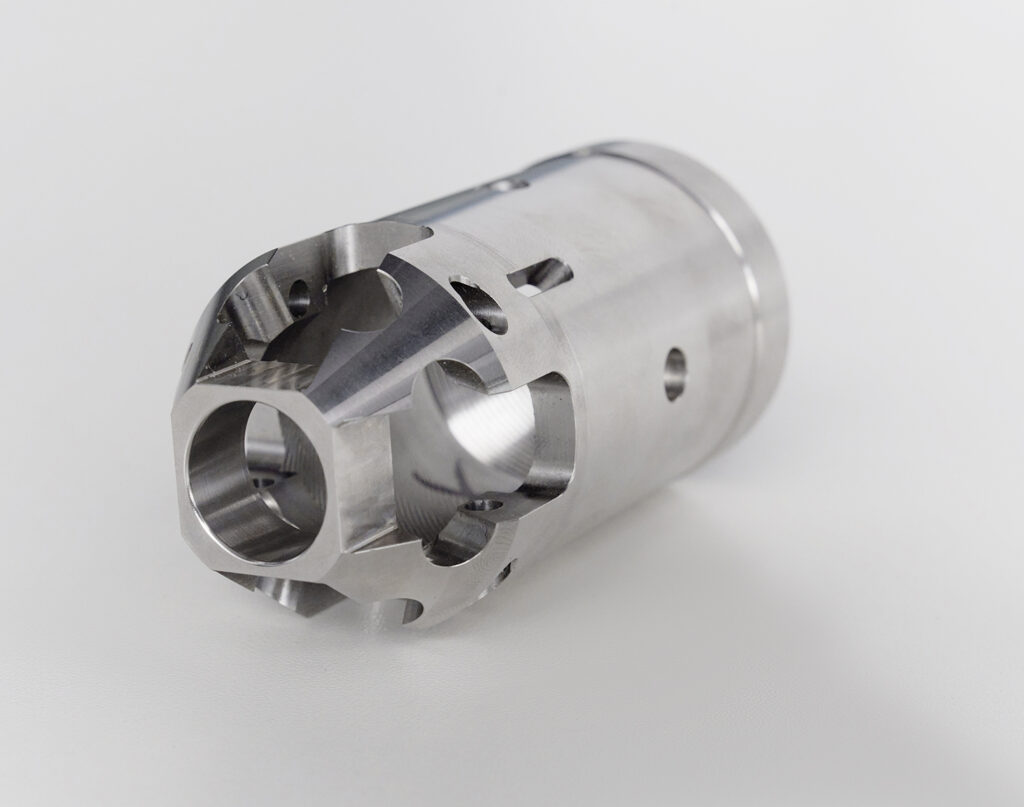
Tight tolerances are another critical aspect. CNC machines can achieve tolerances as narrow as ±0.0005 inches (±0.0127 mm), essential in industries like aerospace, medical, and automotive. Such precision ensures that each part fits flawlessly within its intended assembly.
To handle these requirements, CNC machining centers use high-speed, precision spindles and cutting tools made from advanced materials like carbide or polycrystalline diamond (PCD). These tools provide the accuracy needed for fine details and the durability to withstand the stresses of machining tough materials.
Moreover, consistent quality is ensured through rigorous inspection processes. Using tools like Coordinate Measuring Machines (CMMs) and laser scanners, CNC machinists can verify dimensions and tolerances to micron-level precision, ensuring every part meets its design specifications.
In summary, managing complex geometries and tight tolerances in CNC Machining is a sophisticated process that combines cutting-edge technology, skilled expertise, and stringent quality control. This precision-driven approach is what makes CNC Machining a trusted method for producing high-quality, reliable parts across various industries.
CNC Machining Materials 101: Selecting the Right Material for Your Project
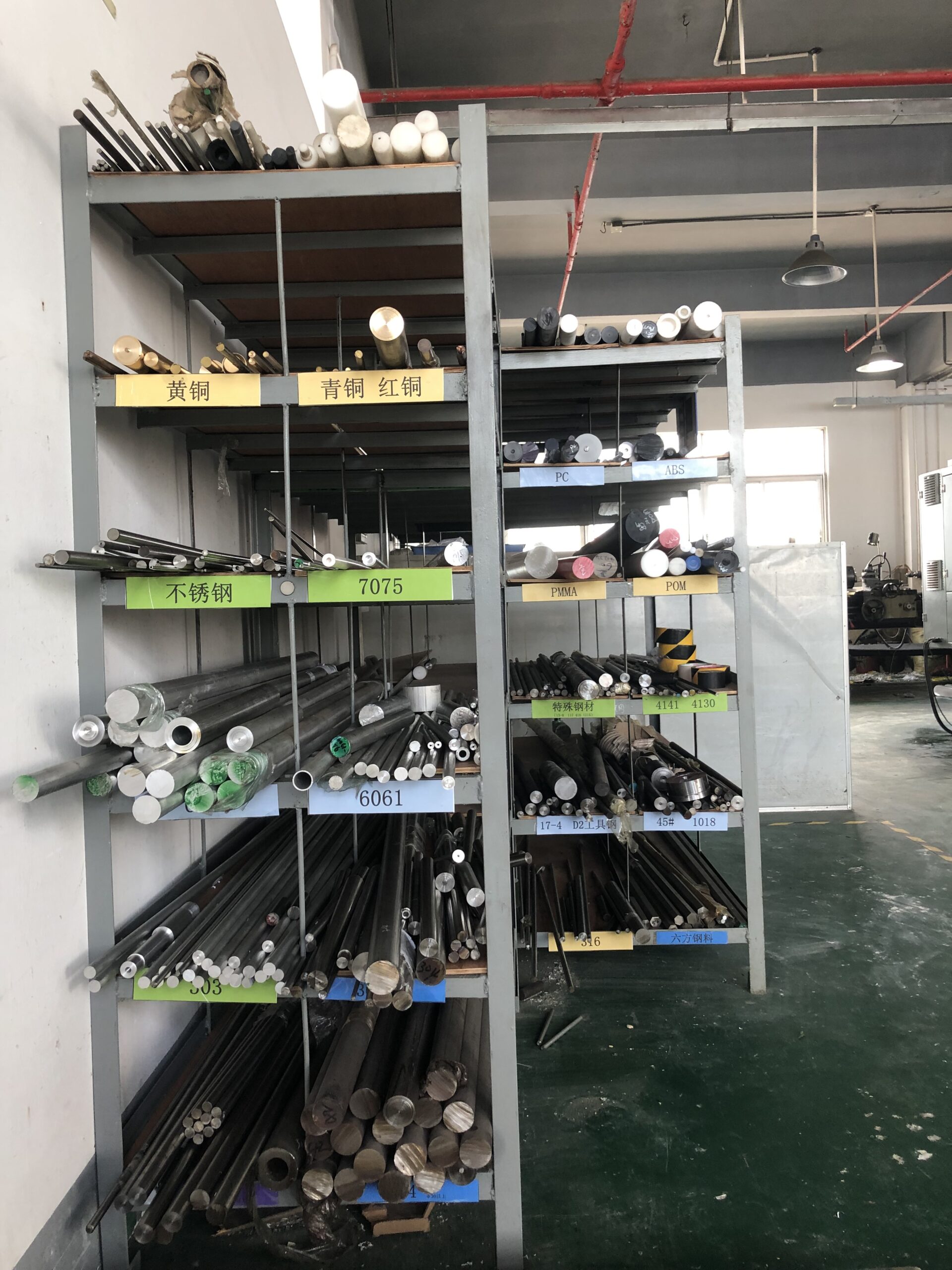
In CNC machining, selecting the right material is paramount for achieving desired outcomes. This choice hinges on the specific requirements of the project, including mechanical properties, aesthetic considerations, and environmental exposure. Here’s a brief guide on popular CNC machining materials:
Metals:
1.Aluminum: Lightweight with excellent machinability, ideal for aerospace and automotive applications ;2.Brass: Known for its acoustic properties, used in musical instruments and decorative items; 3.Copper: Offers superior electrical conductivity, commonly used in electrical components ;4.Stainless Steel: Highly corrosion-resistant, suitable for medical and food-grade applications.
5.Steel Alloy: Combines strength and machinability, used in construction and automotive industries ; 6.Mild Low Carbon Steel: Economical and weldable, ideal for structural applications ; 7.Titanium: Exceptional strength-to-weight ratio, used in aerospace and medical implants.
Plastics:
- ABS: Durable and impact-resistant, used in automotive parts and consumer goods.
- Acetal (Delrin): Low friction, high wear resistance, suitable for gears and bearings.
- CPVC: High temperature and chemical resistance, used in plumbing and industrial applications.
- HDPE/LDPE: Lightweight and moisture resistant, ideal for containers and packaging.
- Nylon: High strength and temperature resistance, used in mechanical components.
- PEEK/PEI (Ultem): High-performance thermoplastics for demanding applications in aerospace and medical.
- PET: Good for food-safe containers and mechanical parts.
- PMMA (Acrylic): Clear and aesthetically pleasing, used in lenses and displays.
- Polycarbonate: Tough and transparent, used in protective gear.
- Polypropylene: Chemical resistance, suitable for chemical and laboratory equipment.
- PPSU: High thermal stability, used in medical and plumbing applications.
- PS (Polystyrene)/PSU: Rigid and heat resistant, used in housings and handles.
- PTFE (Teflon): High heat resistance and non-stick properties, used in cookware and electronics.
- PVC: Versatile and economical, used in construction and medical devices.
Each material offers unique benefits and challenges, and the choice depends on balancing these factors with the project’s specific requirements. Whether it’s a metal or plastic, understanding each material’s properties is crucial for optimal CNC machining outcomes.
Contact Us
Get Started With Premium Rapid & Mold Now!
We always want to make sure that our customers are getting the best deal, so let us know what you’re interested in and we’ll get back with a quote!
